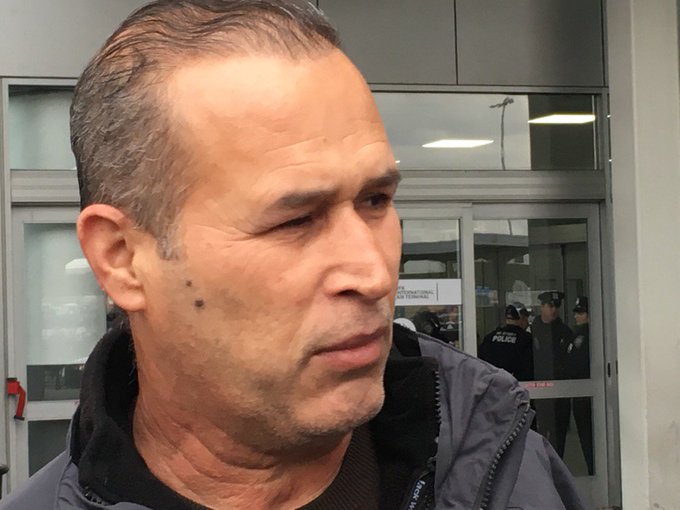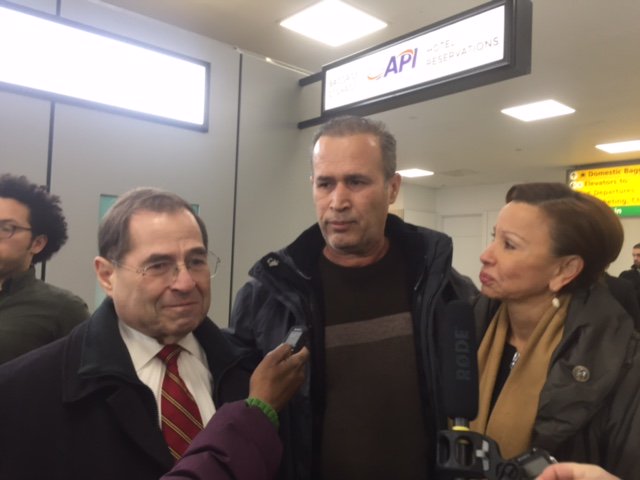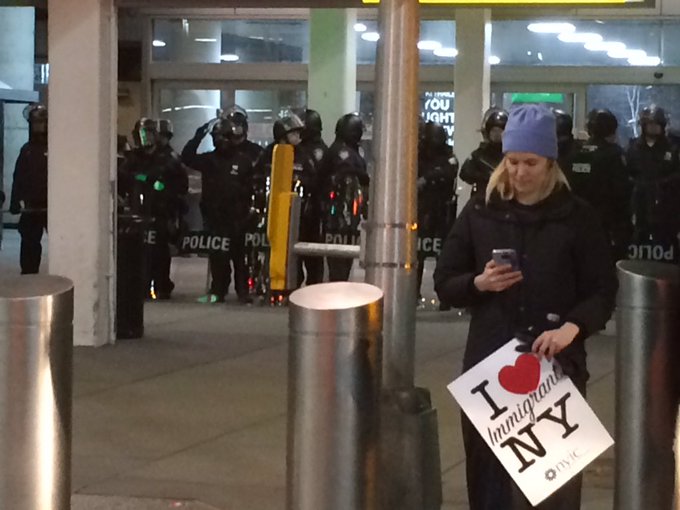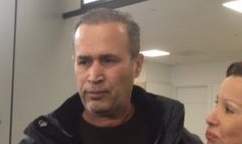Refugees and immigrants from Muslim majority war-torn countries are being detained at American airports or blocked from boarding flights to America as President Donald Trump’s immigration executive order takes effect.
CNN reported that Trump’s immigration ban temporarily blocks 130 million people from theoretically entering the United States.
A federal judge granted an emergency stay of Trump’s executive order on the evening of January 28. According to ABC News, “The ruling does not appear to overturn administration policy, but does appear to apply to all of those people currently detained at airports across the country who were facing imminent deportation.”
Those impacted by the order included Hameed Darweesh, an Iraqi man who helped the U.S. military as an interpreter in Iraq (although he was later freed) and a woman trying to visit her cancer-stricken mother. Green card holders, Canadian citizens, and Google staff members are among those impacted.

A woman holds a sign aloft at the JFK protest of Trump’s immigration ban.(Getty)
President Trump, in signing the executive order, said it was necessary to weed out Islamic radical terrorists who might come to America to cause harm. However, there were already reports on January 28 – the day after the order – that those affected might include an Iranian filmmaker whose film was nominated for an Academy Award and employees of Google. Many people were also confused about whether they or loved ones would be affected by the order and how.
According to CNN, Trump’s order bans “citizens of Iraq and six other Muslim-majority countries – a total of at least 134 million people – from entering the US for the next 90 days. It also suspends the admission of all refugees for 120 days.” CNN reported that the ban affects “students and legal US residents who are citizens of the seven countries banned by Trump and are now stuck overseas.”
The affected countries are Iran, Iraq, Libya, Somalia, Syria, Sudan and Yemen. Immigration from all but Syria was temporarily suspended; Syrian immigration was indefinitely suspended. There are narrow exemptions that can be granted in some cases.
Protests were scheduled for airports around the United States.
Lawyers filed suit on behalf of two Iraqi men detained, including Darweesh, and are seeking to turn the suit into a class action that alleges Trump’s executive order singles out Muslims and is unconstitutional. The lawsuit alleges, “Petitioners’ continued unlawful detention is part of a widespread pattern applied to many refugees and arriving aliens detained after the issuance of the January 27, 2017 executive order.”
The lawyers are alleging violations of the due process clause of the 5th and 14th Amendments. The lawsuit says, “Under United States law as well as human rights conventions, the United States may not return…a noncitizen to a country where she may face torture or persecution.”
Here’s a round up of those detained or impacted as a result of the order:
Dallas, Chicago & JFK Airport Detainments
Protests erupted at John F. Kennedy airport in New York after reports of detainments.
Rep. Jerry Nadler, of New York, wrote on Twitter that he was working to help 11 refugees detained. That’s in addition to two other Iraqi men who were held at JFK after their flights landed (their cases will be explained in the next two sections).
The protests at JFK Terminal 4 grew on the evening of January 28:
People said they numbered in the thousands, and police were present in riot gear.
In Dallas, local news reports said as many as 50 people were detained with families crying at the airport.
In Chicago, at least 18 people were detained, reported the Chicago Tribune. A 6-month-old child was among those briefly detained, the newspaper reported. One man, a professor, has “dual citizenship with Iran and the United Kingdom and has been living in Park Ridge (Illinois) with a green card,” according to The Chicago Tribune.
See photos from the JFK airport protest here:
Canadian Citizens
City News reported: “Canadians who hold dual citizenship with any of the seven countries targeted by a travel ban will not be permitted to enter the U.S., a representative from the State Department said Saturday.”
Google Employees
Google ordered its employees traveling overseas who are from countries affected by the ban to return to the United States, according to Fortune.
The action affected 100 staff members of the tech giant.
Green Card Holders & Those With Long-Term Temporary Visas (Students & Businesspeople)
According to CNN, “The US government will not automatically allow green card holders who traveled to countries placed under a temporary travel ban back into the United States.”
Such travelers must apply for a waiver to the executive order.
ProPublica reported, “Not included in the exemption, however, are those who hold long-term temporary visas — such as students or employees — who have the right to live in the United States for years at a time, as well as to travel abroad and back as they please.”
People with business in the United States also are affected:
Students studying in the U.S. are affected too:
Hameed Darweesh
Darweesh was detained at John F. Kennedy airport in New York on January 27.
According to CNN, Darweesh was released due to exemptions in Trump’s order “that allow the State and Homeland Security departments to admit individuals into the US on a case-by-case base for certain reasons, including when the person is already in transit and it would cause undue hardship and would not pose a threat to the security of the US.”
The lawsuit says that Darweesh is an Iraqi husband and father of three. He is 53-years-old, and his children are ages 20, 15, and 7, according to the suit.
The lawsuit says that Darweesh was previously targeted while in Iraq for his service to the United States military.
The lawsuit says that Darweesh worked as an interpreter for the U.S. Army 101st Airporne in Baghdad and Mosul in 2003 and 2004; worked as an interpreter for the 91st Engineering Unit at the Baghdad Airport in 2004; worked as a Project Engineer for the U.S. Government Projects Contracting Office Oil Sector of North Iraq in 2005 and 2006; and worked for the U.S. government’s Vessar contractors from 2006 to 2011.
In one incident, the lawsuit contends, while working at the Baghdad Airport, the Baghdad police – known to be affiliated with anti-American militias – entered Darweesh’s home and said they were looking for a terrorist. When two of his co-workers were then killed, Darweesh feared for his safety and left Baghdad for Kirkuk, the lawsuit contends. On another occasion, men in a BMW whom Darweesh believes were terrorists twice asked local shopkeepers where he lived. Fearing again for his safety, he fled Kirkuk to Erbil. He then decided to apply for a visa to come to the United States.
Read more about Darweesh here:
Haider Sameer Abdulkhaleq Alshawi
Those working on behalf of Darweesh also filed suit in the name of Alwashi, an Iraqi man who was seeking to join his wife and young son in America.
According to the lawsuit, Alshawi was granted a Follow to Join Visa on January 11, 2017 to rejoin his wife and son, who were granted refugee status due to their family’s association with the United States military.
Alshawi’s wife had worked for a U.S. contractor, the Independent reported.
The lawsuit says that Alshawi’s wife and son were resettled in Houston, Texas.
Alshawi graduated with an accounting degree in 2006 from Baghdad University. Alshawi and his wife Duniyya Alshawi have been married since 2008.
Alshawi’s wife worked for Falcon Security Group, a U.S. contractor, from 2006 to 2007 as an accountant, the lawsuit says. Her brother worked for the contractor as an accountant as well.
According to the lawsuit, “Mr. Alshawi heard through neighbors in the family’s community in Baghdad that, due to the family’s association with the U.S. military, insurgents thought that they were collaborators.” Members of his extended family were blown up by insurgents with an IED, the lawsuit said.
Stopped in Cairo
Seven people – from Iraq and Yemen – were detained at the Cairo airport, according to ABC News.
Sahar Alghnimi – Going to Visit Her Cancer-Stricken Mother
ABC News reported that a Syrian woman, Sahar Alghnimi, was detained in Chicago, where she had arrived to see her mother, who was being treated for cancer. She was sent back to Saudi Arabia, reported ABC.
Nazanin Zinouri
A woman who studied at Clemson reported that she was not allowed back into the United States from Iran:
Asghar Farhadi – Oscar Nominated Filmmaker From Iran
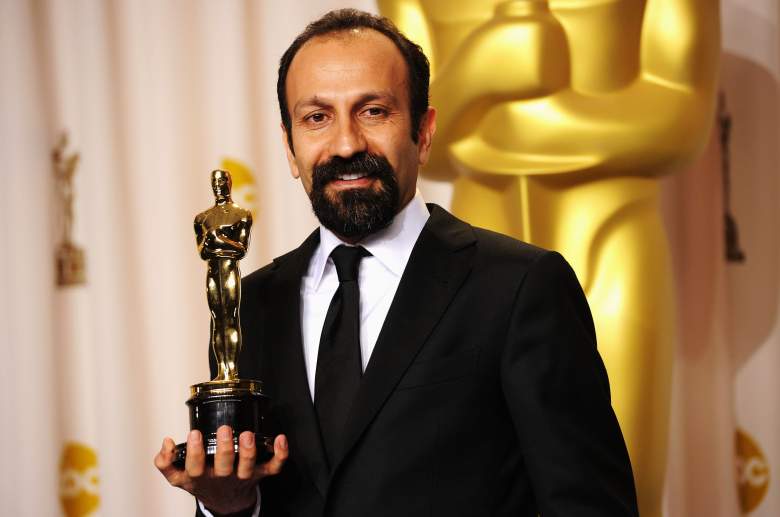
Asghar Farhadi with his Oscar for A Separation. (Getty)
Daily Variety reported that the executive order may prevent Iranian filmmaker Asghar Farhadi from attending the 2017 Academy Awards; he “wrote and directed the 2017 Oscar-nominated foreign language film ‘The Salesman,'” Variety reported.
Farhadi already won an Oscar for 2011’s A Separation, and when he accepted that award, he famously acknowledged how politics had kept Iranian culture hidden from the world.
Read more about Farhadi here:
Other Reports on Social Media
Other accounts were coming in on social media, although they were not yet verified.
The Washington Post reported that a refugee family might be detained at San Francisco airport too.
Reza Zadeh – Stanford University Professor
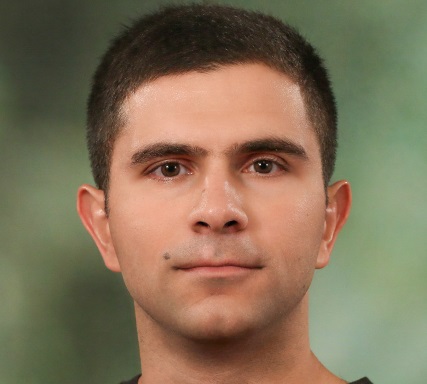
The professor’s Twitter profile picture.
A Stanford professor said that he was affected by the executive order:
The professor wrote that he was already in the U.S. “The US is my home & am happy here. Currently in the US & postponing international trips, hoping the situation clears,” he said on Twitter. Asked by a reporter if he was outside the U.S., he wrote: “No I am inside US and trapped essentially.”
